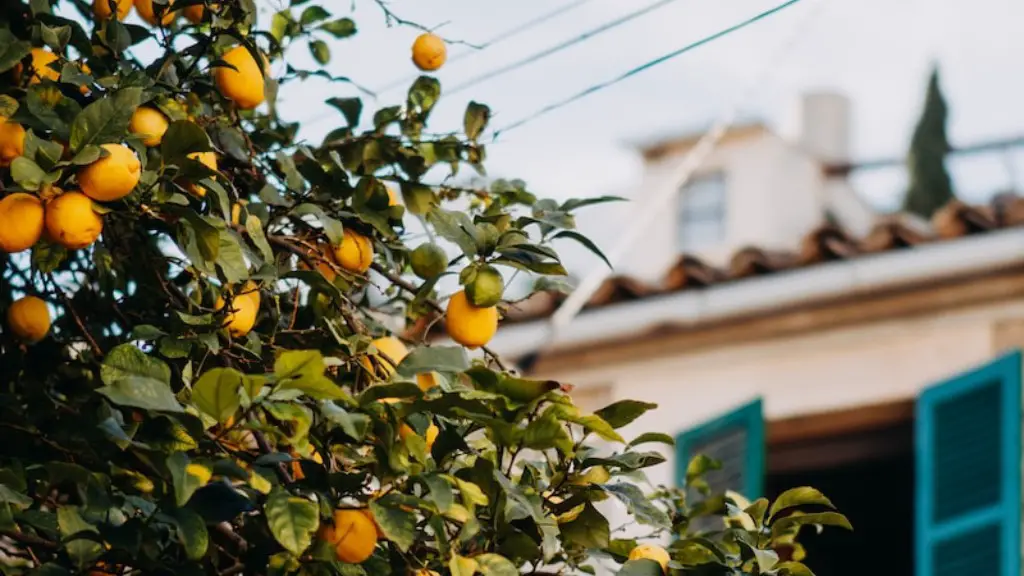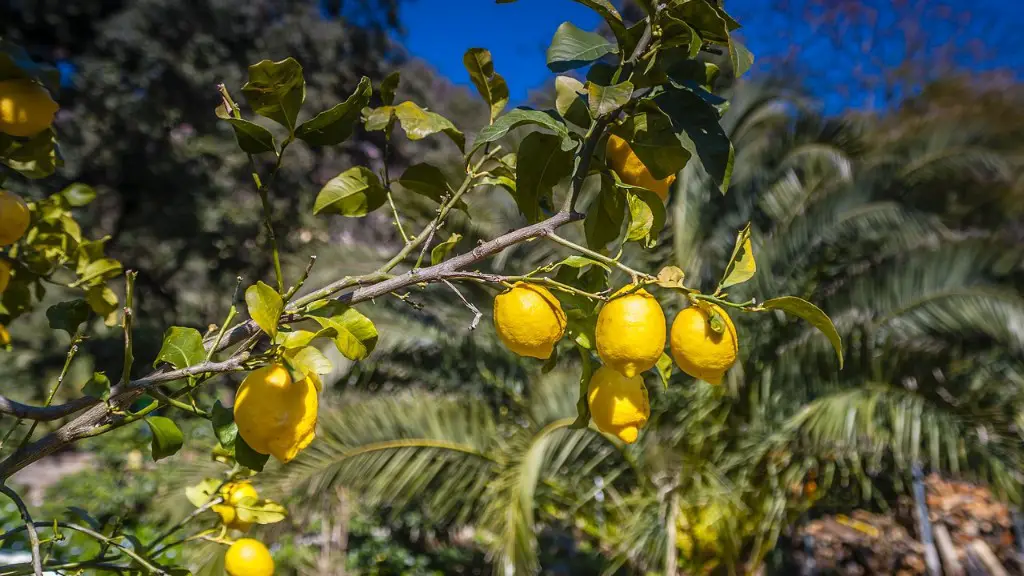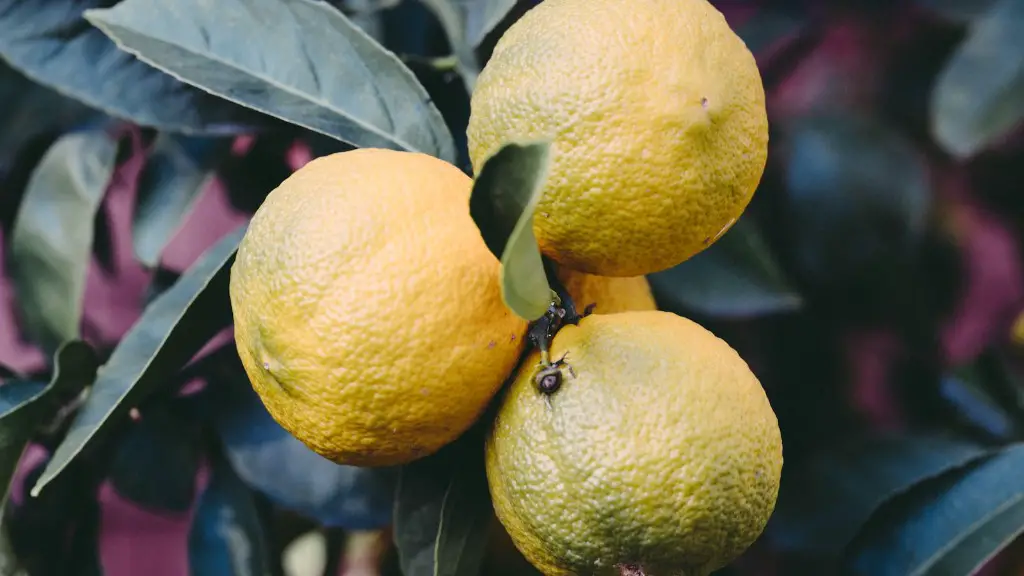The Meyer lemon tree, a popular garden and orchard choice, can reach between 6-10 feet in height. Pot-grown trees grow to an approximate height of 5-6 feet. With the right care and attention, a Meyer tree can reach its maximum potential height and offer its excellent fruit. To grow a healthy Meyer lemon tree, the important thing is to provide suitable soil, water and light requirements.
Generally, Meyer lemon trees thrive in well-drained soil with a pH range of between 6 and 7. A soil with high organic content, such as a mix of compost, aged manure and sand, is suitable for Meyer lemon trees and allows it to hold on to the moisture it needs. Occasional watering sessions are necessary, but it is important not to overwater the soil.
In terms of lighting, Meyer lemon trees prefer full sun; at least 8 hours of direct sunlight daily. Partial shade is recommended during the hot summer months to protect the leaves from burning and scorching. Citrus trees also benefit from wind protection which can be provided by planting hedges or trellises.
When fertilizing Meyer lemon trees, it is important to use a fertilizer rich in nitrogen and potassium, but low in phosphorous. The fertilizer should be applied 3-4 times a year and should be balanced. Overfertilizing can damage the tree, so it is important to follow the manufacturer’s instructions carefully. Additionally, it is advisable to apply a layer of mulch around the Meyer lemon tree to help regulate the soil’s temperature and retain moisture.
Finally, pruning is a great practice for promoting bushier growth and for maintaining the desired size of the Meyer lemon tree. Pruning should take place between late autumn and mid-spring. To avoid pest and disease, follow the pruning with a copper fungicide and insecticide. Additionally, it is essential to check the citrus tree regularly for pests and diseases and to treat any issues as soon as they are noticed.
Tips for Growing Healthy Meyer Lemon Trees
Growing a healthy Meyer lemon tree requires commitment and knowledge. The following tips can help ensure Meyer lemon tree continues to flourish and reach its full potential height:
- Always use well-drained soil, high in organic content, such as a mix of compost, aged manure and sand.
- Provide Citrus trees with the necessary 8 hours of direct sunlight, but offer some protection against the sun during hot months.
- When fertilizing, use a balanced fertilizer rich in nitrogen and potassium but low in phosphorous.
- Mulch the soil with wood chips, leaves, or grass clippings to keep the soil temperatures down and retain moisture.
- Prune the tree regularly to maintain the desired size and shape.
- Check the tree regularly for pests and diseases and treat any issues immediately.
Environmental Requirements for a Meyer Lemon Tree
The proper environmental conditions are essential for ensuring a healthy Meyer lemon tree. While sunlight is important for the tree to thrive, excessive sunlight comes with the risk of sunburn and scorching of the leaves. Similarly, insufficient moisture or over-watering can cause major issues. Planting Meyer Lemon trees in well-drained soil with adequate organic content and mulching regularly can help protect the tree from climate-related issues. Additionally, using balanced fertilizer is also a great idea.
Storage and Transportation of Meyer Lemon Trees
When considering storage and transportation of Meyer lemon trees, it is essential to ensure the trees are not exposed to extreme temperatures. Transporting Meyer lemon trees in a climate-controlled environment is the best way to ensure their longevity and health. Additionally, when storing the Meyer lemon trees, the ideal temperature should be between 4-10°C (40-50°F), as lower temperatures can damage the tree.
Fruit Production in Meyer Lemon Trees
Many factors, such as environmental conditions and soil requirements, can play a role in the production of fruit on a Meyer Lemon tree. Trees older than two years are usually mature enough to bear fruit. Fertilizing and pruning the tree regularly can help improve its fruit production, as well as providing it with 8 hours of sunlight, wind protection, and well-drained soil. Additionally, while it is common for the Meyer Lemon tree to bear fruit year-round, early spring is the peak season for fruit production.
Pest and Disease Prevention for a Meyer Lemon Tree
The health of a Meyer Lemon tree depends largely on its ability to resist pests and diseases. Following suitable growing conditions, such as providing the ideal soil and lighting, is essential for the tree’s health. Regularly pruning and spraying with a copper fungicide and insecticide after pruning can help prevent potential pests and diseases. Furthermore, it is important to check the tree regularly for any signs of pests or diseases, and take action immediately if any issues are noticed.


